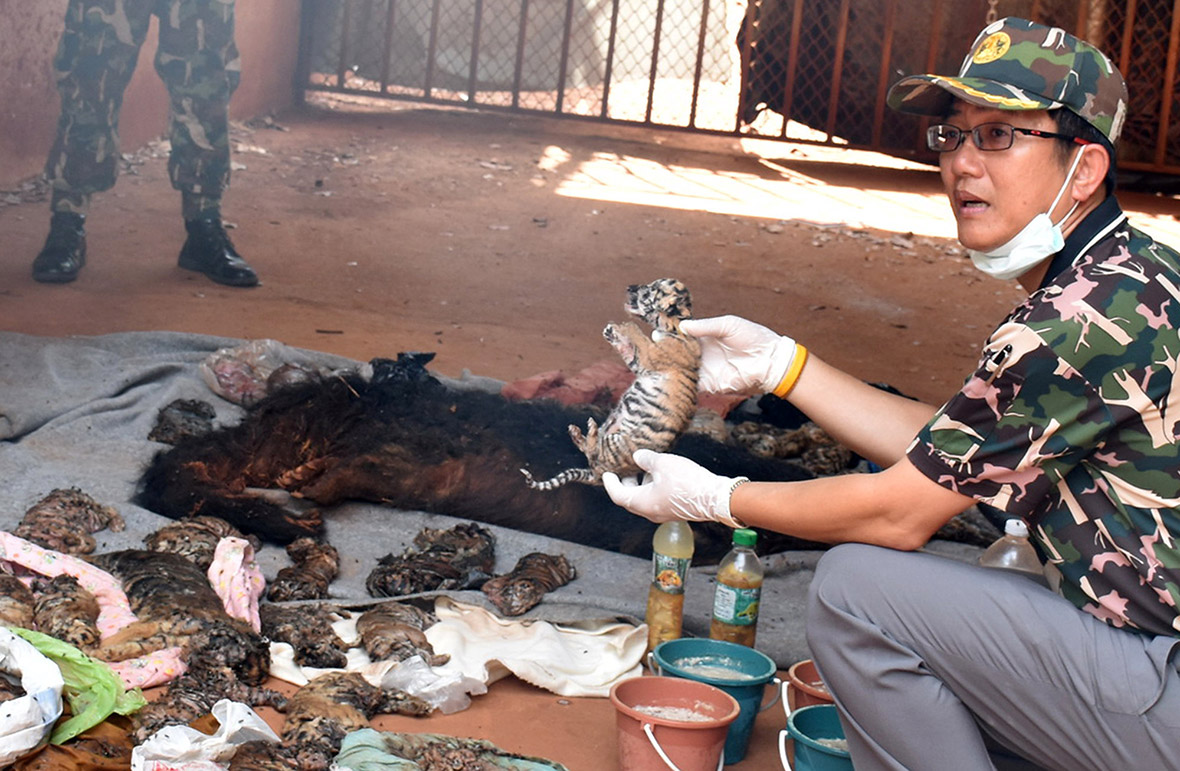Thailand: Graphic images of 40 dead tiger cubs found in freezer during Buddhist Tiger Temple raid
The carcasses of 40 tiger cubs have been found in a freezer during a raid on Thailand's controversial Tiger Temple in Kanchanaburi Province, west of Bangkok. The bodies of the baby tigers were discovered alongside that of a binturong, a protected species commonly known as a bearcat, and other animal parts.
There are fears that tiger body parts may have been sold for use in traditional Chinese medicine. The cubs were found in a freezer in a kitchen area, Adisorn Nuchdamrong, deputy director-general of the Department of National Parks, told Reuters. "They must be of some value for the temple to keep them. But for what is beyond me," he said.


The remains will be DNA tested, as authorities suspect monks at the Buddhist temple have been involved in illegal breeding and trafficking of the animals. Thai wildlife authorities have started removing the temple's 137 surviving tigers. The director of Thailand's Wildlife Conservation Office, Teunjai Noochdumrong, said that over the past two days, 40 tigers had been tranquillised and removed. They are being taken to government animal shelters elsewhere in the country. She said they hope to move 20 tigers a day, or more if the weather is cool.







Animal rights activists have long accused the temple of mistreating the tigers. The Wat Pha Luang Ta Bua Buddhist temple operated as an admission-charging zoo, allowing tourists to pose with the big cats and bottle-feed the cubs. Some visitors have said the animals can appear drugged. The temple denies the accusations.









The monks had resisted attempts to take the tigers away, but they relented after police obtained a court order to carry out the action. "There was some resistance from the community, they didn't understand why we were taking [the tigers] from the temple when they look so peaceful and fine at the temple," said Teunjai. "We tried talking to them, explaining to them that the tigers belong to the country." The monks still don't understand, but at least did not put up physical resistance, she said.
© Copyright IBTimes 2025. All rights reserved.






















